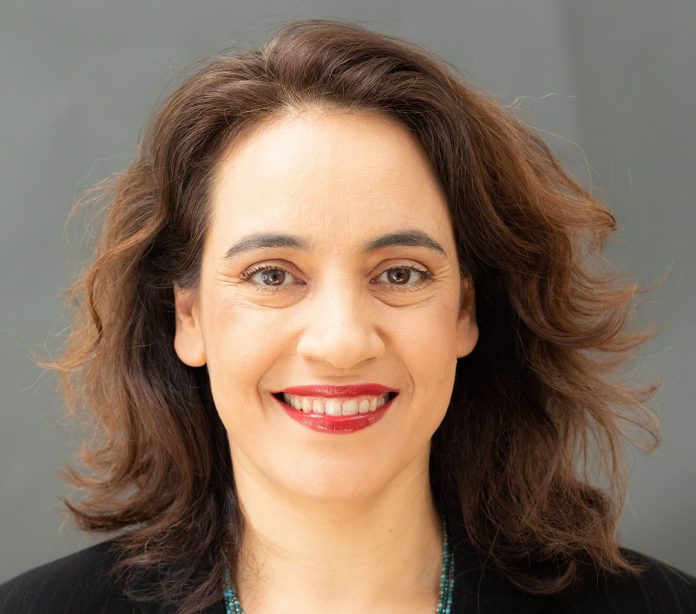Travelling is often synonymous with finding oneself and not launching new businesses. However, an illness-ridden holiday led to the launch of Air Doctor, a travel InsurTech.
In 2018 it was estimated there were 1.4 billion international tourist arrivals globally, hitting a new record and a 6% rise on 2017, according to the World Tourism Organisation. It’s good to note that this figure does not claim that 1.4 billion individuals travelled abroad, as many people go to multiple countries in one year. Travel is a very popular endeavour and is a huge market. Tourism even accounted for 2% ($1.7trn) of the global GDP in 2018. With so many people going abroad, it’s inevitable that several will encounter health issues at some point.
The trouble is, when going to another country it is very likely you do not speak the native tongue. This means communicating with a doctor might pose some difficulties and speaking slower and louder doesn’t actually help, despite what many English tourists may believe. The need of finding a doctor that can speak your language is where Air Doctor spawned.
Yam Derfler​ was travelling across Mexico with a group of friends and during their trip many of them fell ill. Efrat Sagi-Ofir​, co-founder and COO of Air Doctor, said, “They were unable to find a good medical solution and one of the friends even had to go back home because he was so sick.†The friends were going to hospitals and given medications, but because they could not converse with the doctors and nurses it meant there was ambiguity of what was happening and whether the medication was right for them. Being in a hospital is scary enough, but not being able to understand what is going on makes it even more so. “There was lack of communication because he [Yam] is not a Spanish speaker and everyone in the hospital spoke Spanish and it was really a nightmare,†she added.
Upon returning back to Israel, Yam met up with his fellow co-founders and explained the debacle he had faced on his trip. While the holiday might not have been the most pleasant, it gave them the idea for Air Doctor. They all began to discuss how such an issue can still be present in the technology-led world we live in. Efrat said, “You can order a Uber, you can book an apartment, you can even order a pizza with pineapple, yet you can’t find a doctor when you really need it.†After this, Jenny Cohen Derfler​​, Efrat Sagi-Ofir, Yegor Kurbachev​ and Yam Drefler began to build their network of doctors.
They found that there were very good companies which could help you if you had a serious injury, such as being hit by a car or having a heart attack. But, there was nothing available for helping travellers contact doctors for small illnesses. This meant if you had issues with your stomach or got a cough you couldn’t shake, which in today’s climate is a very major concern, you were pretty helpless. The aim of creating Air Doctor was to help travellers either find a nearby doctor who would speak their language, or facilitate a video call with someone that does.
To achieve this they needed to create a network of doctors. Efrat said, “When we started, Jenny and I did that [built the network] personally, because when you start you want to do everything yourself to really learn and understand if there is a market or a need and whether you can get a doctor engaged.†They began with Greece. Greece is a very popular destination for travellers, with it estimated that around 33 million people visited the country in 2018. This popularity made it the perfect battleground to start work. Not only is there a big language barrier for people traveling to Greece from Israel, but the letters are so different that it is near impossible to guess what things mean.
They began with Athens and moved across the islands, creating a community of doctors that would be able to help travellers from Israel and a number of other countries. During their time there they found is that most of the doctors in the community had no way to reach the travellers and the travellers have no way to reach them. “From the doctors’ perspective, they see the need because they want to treat the travellers as they are private patients for them. Without Air Doctor they have no visibility of the travellers.†The company, which was created in 2016, has since gone on to create a network of doctors that spans 48 countries and is helping travellers around the world feel at ease getting healthcare in a foreign country. Air Doctor is available across Europe, North America, parts of Asia and is looking to enter Latin America in the near future.
What is Air Doctor?
So what exactly is Air Doctor? Well, the company connects travellers with private doctors based on specialty, location, language, and other client reviews. The appointment can either be a house-call, trip to the clinic or digitally through video calls. They can then book an appointment through the app and once they get their invoice, they simply send it off to their insurer. The platform aims to help people find a trusted doctor, even when they are in a different country. Insurance firms can use Air Doctor to provide their policyholders with improved experiences. Efrat added, “They [customers] are saying that they are getting a VIP solution, with no extra cost.†It’s only natural for it to seem like this, when you can contact a doctor and get an appointment in a relatively short time.
Typically when you ask to see your local GP there is a waiting period, which can even be a week or two. This is redundant for a traveller as they haven’t got all the time in the world and will likely be back home by then. This means they need to see a doctor as soon as they can. Something made possible through Air Doctor.
There have been a number of success stories of Air Doctor and how it saved people’s trips. Efrat explained, “We had a businessman call us who had lost his voice and needed to give a big lecture the day after. We quickly helped him to see a doctor and get some medication, so he was able to do that lecture.†Another story involved a mother and a very small baby stuck in their hotel in China unable to do anything until Air Doctor helped.
One of the slightly stranger stories involved a family in the middle of a trip across Europe, travelling between multiple countries. Their teenage daughter became ill on the journey, but rather that calling it quits, the family used Air Doctor to speak with a doctor in each of the locations they arrived in, picking up new medication and continuing on their way to the next country.
These real-life examples just highlight how important it is for people to have the capability of talking to a doctor they can understand. Traveling always comes with risk and this just helps to ease those worries if something does go wrong. The current pandemic has made it even more crucial. Going away on holiday in 2020 and 2021 is going to be different as the fear of the coronavirus will constantly be looming in the background of the mind. If you do get flu like symptoms or a cough, it’s only natural you’ll begin thinking of the worst case scenario, it’s only human to do so. Having a service like Air Doctor, will help you understand what is wrong with you and what actions you need to take. Efrat said, “I want people who travel to say before they leave their house, ‘I have my passport, I have Air doctor and I have my suitcase.â€
Efrat even experienced first-hand a situation where a service like Air Doctor would have been useful, had it been around when she needed it. “I was travelling with my family and my daughter got a cut right near the eye. We were in Spain and we are not Spanish speakers so it was a nightmare because you really are lost for what to do,†she added. “When I was travelling, if I had Air Doctor that would have been amazing for me because with two clicks I could talk to someone and not be lost anymore.â€
Appetite for the company has been very strong. The company has raised a coupled of funding rounds to help it continue its growth. A $3.1m seed round was secured in 2018 from Kamet Ventures and more recently, the InsurTech bagged $7.8m in a Series A round in March 2020. Plans for the Series A capital have since changed. Initially it was going to support expansion, but is now helping the company through the pandemic. While it is not ideal, the funding did come in at the perfect time.
It’s not just investors the company has piqued the interest of. Customers are very eager for the service. When the company first began working with Phoenix, one of the biggest insurance firms in Israel, Air Doctor was expecting around 40%-50% of policyholders to use its services, when in fact it was closer to 95%. When people get ill on holiday, most people go to the hotel concierge or use Google. People are creatures of habit, so Air Doctor expected many to continue doing as they had before, but that was not the case. Users were keen to speak with a doctor and get the proper help. This in-turn makes an insurance company more appealing as the quality of customer experience is increased.
Adapting for the Covid-19
As previously mentioned, the coronavirus is going to play heavily on people’s minds when they are travelling over the next couple of years. People still want to go to explore other countries and we can already see people are already doing so. Thanks to initiatives in Europe which are building lists of quarantine-exempt destinations, people are booking trips once again. But this doesn’t mean the risk is zero in the countries. If you are unfortunate enough to contract the virus whilst away, you are likely to be unaware of the rules, as each country has different ways of handling things. Air Doctor can help to ensure people know what they are meant to be doing.
The travel industry has been one of the most heavily impacted by the coronavirus. People couldn’t as much leave their own home, let alone take a two week trip to the beaches of Zante. But challenges are part of life and businesses that survive are the ones that can adapt. Air Doctor did just that. Instead of sitting in the dirt feeling distraught of the ecosystem, they looked at this as an opportunity to improve themselves. She said, “okay we don’t have travellers now but what we can do is really make ourselves strong and ready for the day after the Covid-19.â€
To that extent, the company has been signing new deals with insurance firms, strengthening its doctor network and enhancing the services it offers. But even more intuitively, the company realised its services were well suited for locals that were forced to stay indoors. Through its telemedicine tools, people could still reach their local doctors without having to physically go into the clinic.
Copyright © 2020 FinTech Global











